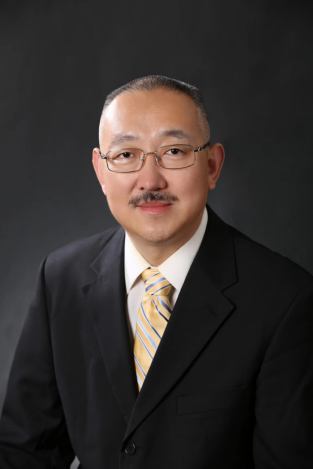Recently, the Ministry of Industry and Information Technology announced the results of special review
on
the 2023 National Key Research and Development Program
“Energy Storage and Smart Grid Technology”.
The project titled “7.2 Megawatt Dynamic Reconfigurable Battery Energy Storage Technology (Common Key Technologies)”,
led by Tsinghua University and
directed
by Researcher Ci Song from the Department of Electrical Engineering
and Applied Electronics (EEA)
, received official approval. The total project funding is 260 million yuan, with 19.9 million yuan allocated from central financial funds, and the execution period spans three years.
As a fundamental infrastructure for flexible and efficient energy translation in both time and space, battery energy storage plays an irreplaceable role in the ongoing global energy low-carbon transformation revolution. Despite its significant and rapidly growing application scale, large-scale battery energy storage systems have long faced challenges related to massive differentiation in battery management, collaborative control, and safe operation. The root cause of these challenges is the shortcoming effect brought about by the fixed series-parallel grouping structure of batteries. By employing information-energy cross-fusion technology and innovative module technology, the project aims to revolutionize the battery grouping mode and energy control mechanism, addressing efficiency, safety, economy, and compatibility issues associated with the fixed series-parallel grouping of batteries. The project will innovatively eliminate the shortcomings of battery energy storage systems through energy information processing mechanisms, elucidate the coupling laws of the intrinsic properties and operational characteristics of dynamic reconfigurable battery energy storage systems, propose intrinsic safety energy control methods, and overcome a series of key technologies such as efficient system integration, optimization operation, and intelligent operation and maintenance. The team will develop a 72-megawatt-hour dynamic reconfigurable battery energy storage system and establish demonstration projects for 100-megawatt-hour dynamic reconfigurable battery energy storage systems on the power supply side, grid side, and user side. The team aims to complete application verification and comprehensive performance evaluations.
The project is led by Tsinghua University and involves nine institutions, including the Institute of Electrical Engineering of the Chinese Academy of Sciences, Xi’an Jiaotong University, Beijing Institute of Technology, State Grid Jiangsu Electric Power Company, Huaneng Inner Mongolia Energy Corporation, and China Mobile Group Design Institute Co., Ltd. The team comprises nine national laboratories and research centers directly related to the project, as well as 12 provincial and ministerial laboratories and research centers. In the past five years, the team has undertaken more than 100 national key research and development projects, National Natural Science Foundation projects, and provincial and ministerial science and technology projects, winning six national awards and 22 provincial and ministerial awards. The team has also formulated 10 international standards, 15 national standards, published over 300 papers, and obtained more than 200 authorized invention patents. The team has accumulated a solid theoretical research foundation in areas such as information-energy deep fusion mechanisms, battery system safety control, energy storage inverter operation control, battery aging and life assessment, and energy storage system grid connection technology.
The project team first proposed the concept of “dynamic reconfigurable battery network” internationally in 2006 and developed the first “software-defined digital energy storage system”. Over the course of 17 years of continuous iteration, the team has formed a series of solutions for the power supply side, grid side, and user side and completed over 20 engineering applications, including the world's largest single-point 10MW/34MWh centralized utilization of power battery energy storage station and a 45MW/90MWh wind-solar integrated energy storage station. This extensive experience in equipment research and development and engineering construction provides valuable insights for the smooth implementation of the project. The project aims to break through the theory and technology of dynamic reconfigurable battery energy storage systems, solve the pain points of system efficiency, safety, economy, and compatibility caused by traditional fixed series-parallel grouping, and lay the foundation for building high-security, long-life, and low-cost battery energy storage systems. The project’s achievements will directly contribute to national strategic emerging industries such as batteries, new energy vehicles, new energy storage, and green environmental protection, forming common key technologies, core system equipment, and benchmark projects. Additionally, the project will cultivate a group of talents in dynamic reconfigurable battery energy storage system technology, promoting the safe, healthy, and rapid development of the energy storage industry.

Project Leader Introduction
Ci Song, a researcher in the Department of Electrical Engineering and Applied Electronics at Tsinghua University, is a member of national talent programs and an IEEE Fellow. He serves as the director of the “Information Energy” joint laboratory established by the Ministry of Education and China Mobile. Additionally, he is a Global Visiting Professor at the Technical University of Munich in Germany and an international expert in the field of information-energy cross-fusion. Devoted to research on modeling and optimization theories for large-scale complex systems and their applications in the Internet of Information and Energy, Ci Song has published over 300 papers and applied for more than 100 patents in these fields. He has led and participated in numerous national research projects, serving as an editorial board member or invited editorial board member for several top international journals and as the chair or member of technical program committees for various conferences. Ci Song has been a pioneer in proposing the digital energy storage technology system, fundamentally addressing safety, economy, and cascading utilization issues in battery energy storage systems. This technology is considered revolutionary in the field of the Energy Internet.

















 News & Events
News & Events